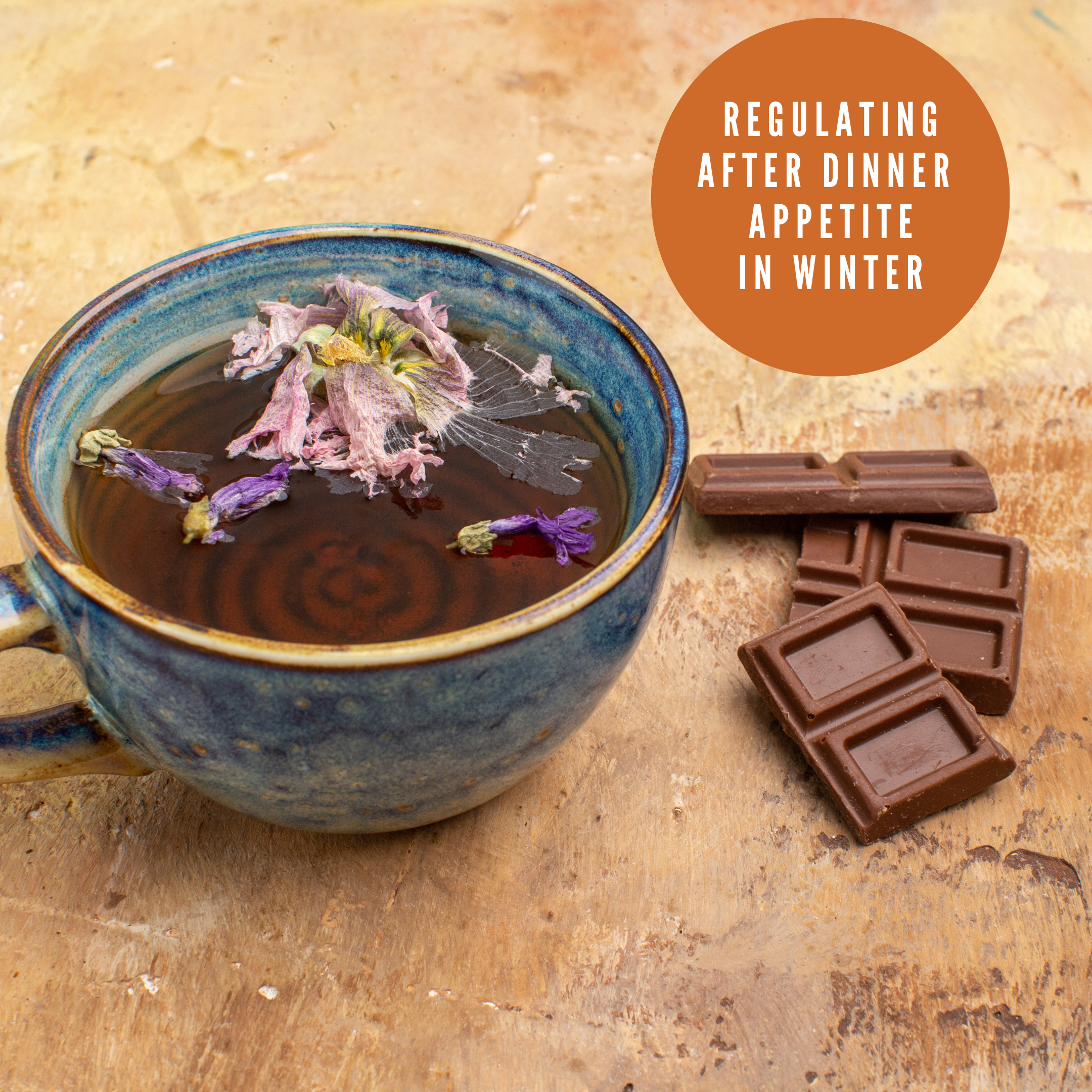For many, winter is synonymous with comfort eating and snacking late into the night. There are many reasons why this can occur including:
- Eating is a way to raise body temperature and when we are craving warmth, it makes sense to eat!
- We tend to hibernate at home on the couch more = more opportunity or desire to eat out of boredom or habit.
- Change in sleep habits due to shorter days and darker mornings, can cause circadian misalignment which can impact our satiety signal leptin and make it harder to control portion sizes and appetite.
- Mindset – associating winter with a license to overeat because “weight gain is inevitable” – this could not be further from the truth!
How to overcome this?
If comfort eating or late-night snacking has become a habit which you would like to unlearn, here are some tips on how to better regulate your appetite, especially during winter:
- Eat a serve of protein at each meal and snack during the day: protein is key to satiety; it helps us to not only feel full from the meals we have just eaten but also post meal. As a general rule, aim for 20-30g protein per main meal and at least 5g per snack. Sources of protein include meat, eggs, dairy, tofu, legumes, nuts/seeds, and protein power.
- Balance dinner correctly: in an ideal world a balanced dinner is made up of ½ plate low-starch veggies, ¼ plate protein, ¼ plate carbs and 1 tbsp. healthy fats. If you are having a zero-low carb dinner and find you then snack on potato chips and biscuits, try adding a sensible portion of carbs, such as ½ up cooked brown rice or 1 small sweet potato to dinner. This may be all it takes to cut back on carb cravings. Opt for low GI, complex carbs such as wholegrains and root veggies.
- Prioritise fibre: when selecting carbs, think fibre! Fibre is very helpful for curbing appetite. Some fibre super stars include: oat bran, pears, cooked/cooled potatoes, legumes and chia seeds.
- Go Mediterranean: the Mediterranean diet is well known for its high anti-oxidant, anti-inflammatory and omega-3 fatty acids intake. Notably, it is believed to curb appetite via regular intake of fibre rich foods including legumes, vegetables, whole grains and nuts. Additionally, regular consumption of monounsaturated and polyunsaturated fats might assist to regulate the serotonin pathway influencing eating behaviour. Thankfully winter lends well to this style of diet as legumes, veggies and wholegrains go well in soups, curries, casseroles and slow cooked dishes.
- Start the day with a protein rich breakfast: research has shown that skimping on protein earlier in the day can cause overeating later into the day/night. No matter what time you start your day food wise, make sure the first meal has a decent dose of protein, as discussed above.
- Assess genuine appetite: before reaching for a snack, take a deep breath and ask yourself – is this genuine hunger or am I reaching for comfort or out of boredom? If the latter, think of other ways you can find comfort and engagement, such as calling a friend, reading a book, journaling, doing a short meditation or sipping some soothing tea.
Satisfying after dinner snacks
If you are seeking some snack options post dinner, I have put together a few nutritionally balanced ideas which will be satisfying and therefore help to curb constant grazing and picking post dinner.
Homemade fruit & nut bliss balls
Made using dried fruit such as figs which offer a plant-based source of calcium in addition to being a great way to sweeten the balls, cacao, rich in magnesium and a mix of nuts and seeds, as healthy fats to help with satiety. This means, one ball is usually enough to satisfy a sweet craving and excess can be stored in the fridge for up to 1 week or frozen.
Golden Milk
Golden milk is made on a base of milk of choice, with fresh or ground turmeric, ginger, cinnamon, coconut oil and honey. It’s also important to add a pinch of black pepper as this helps increase the absorption of turmeric. This is nice served as is or with a few squares of dark chocolate.
Fruit compote and yoghurt
Fruit that works best in this recipe includes strawberries, apple, rhubarb, blueberries and raspberries. To make the compote, simply add chopped fruit and water to a saucepan and simmer on a low heat until fruit breaks down and mixture starts to thicken. If preferred the mixture can be sweetened with a bit of honey. Serve the compote warm with a dollop of thick Greek yoghurt or coconut yoghurt.
Cheese and fruit
Cheese and fruit is a yum combo and a great option after dinner as its super easy to prepare. My favourite combo is a small wedge of firm ricotta and fresh dates. The sweetness of the dates is balanced out by the subtle and richness of the ricotta. This is a good option for those with a sweet tooth but they also feel like something savoury. If you don’t consume dairy, you can use a vegan cheese or nut butter.
Cottage Cheese
Cottage cheese is a great source of protein. It is nice served with grated dark chocolate, cinnamon and berries as a simple snack. As a savoury option, try cottage cheese with some wholegrain crackers and tomato.
